About Publications Library Archives
heritagepost.org

Preserving Revolutionary & Civil War History

Preserving Revolutionary & Civil War History

Author: Daniel H. Hill Date:1863 Annotation: By early 1863, the Civil War had begun to cause severe hardship on the southern homefront. Not only was most of the fighting taking place in the South, but as the Union blockade grew more effective and the South’s railroad system deteriorated, shortages grew increasingly common. In Richmond,…
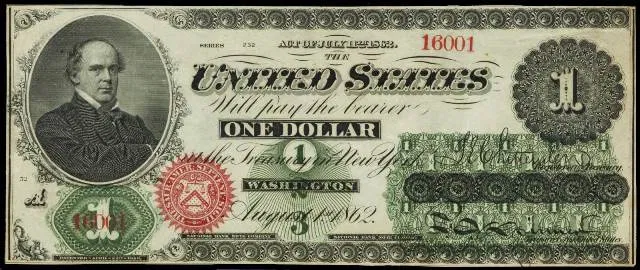
Author: Samuel P. Chase Date:1863 Annotation: During the war, the Republican-controlled Congress enacted a series of measures which carried long-term consequences for the future. The Homestead Act of 1862 provided public land free to pioneers who agreed to farm the land for five years. The Morrill Act of 1862 helped states establish agricultural and…
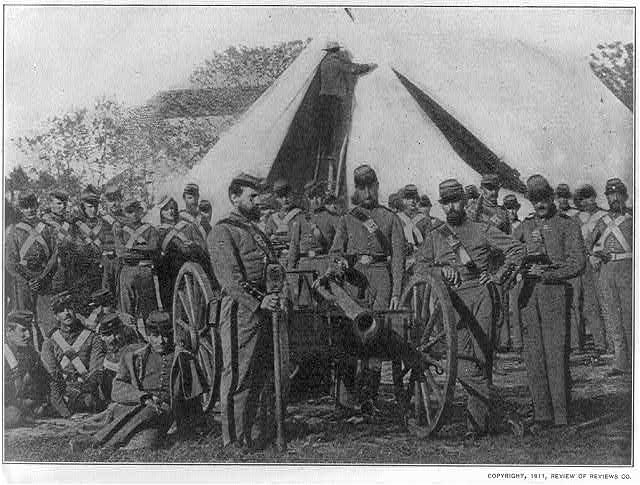
Author: A soldier in the 12th Vermont Militia Date:1863 Annotation: There can be no doubt that some northern soldiers who were willing to fight to preserve the Union were unwilling to fight to abolish slavery. An unidentified soldier in the 12th Vermont militia expresses his opposition to the Emancipation Proclamation. Document: We are going…
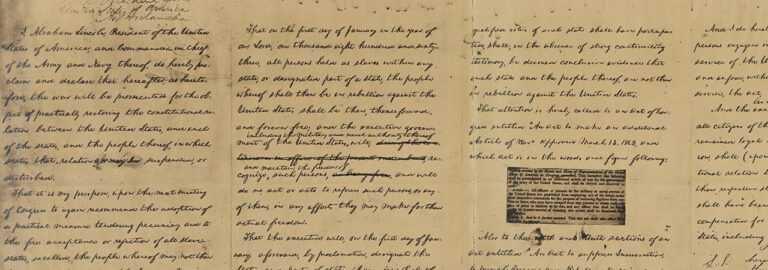
Author: Amos Lewis Date:1863 Annotation: A Northerner reflects on the significance of the Emancipation Proclamation, which went into effect sixteen days before this letter was written. Document: The partial Proclamation has gone forth from the White House that the slaves of rebels shall be free while the slaves of union men are to remain…
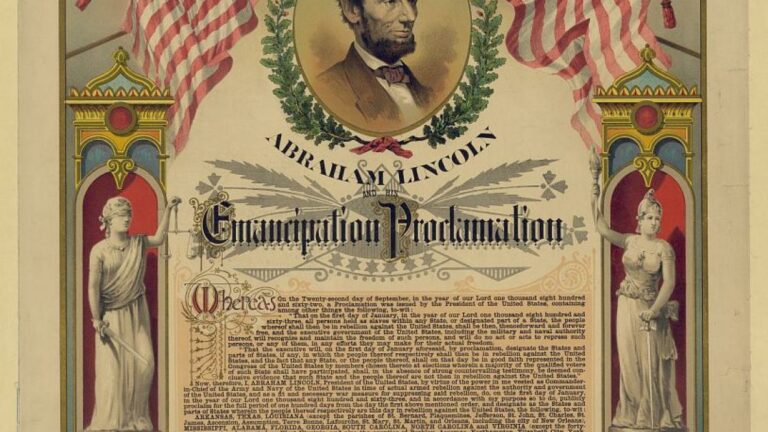
Author: Rufus Blanchard Date:1863 Annotation: In recent years, it has sometimes been charged that Lincoln’s proclamation did not free any slaves, since it applied only to areas that were in a state of rebellion and explicitly exempted the border states, Tennessee, and portions of Louisiana and Virginia. This view is incorrect. The proclamation did…
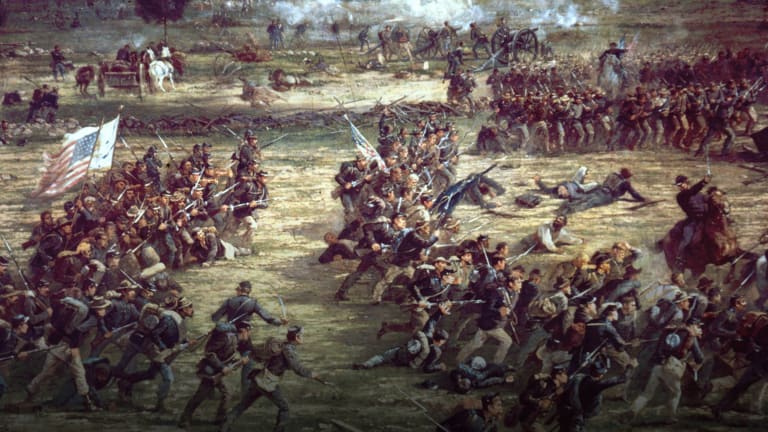
Author: Josiah C. Fuller Date:1863 Annotation: When his forces drove northward into Pennsylvania, Lee assumed, mistakenly, that Union forces were still in Virgina. When he suddenly realized that Union forces were in close pursuit, he ordered his forces, which were strung out from Maryland to Harrisburg, Pennsylvania, to converge at Gettysburg, Pennsyvania, a central…
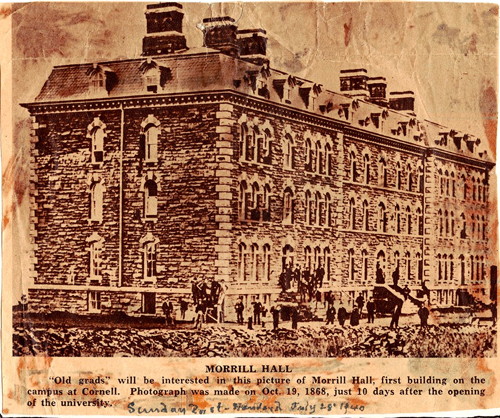
Annotation: Congressional act to establish land grant colleges. The Morrill Act was introduced by Congressman Justin Morrill of Vermont. Under the act, each state that had remained in the Union received 30,000 acres of federal land for each member of its congressional delegation. The states sold the land and used the money to establish “land-grant”…
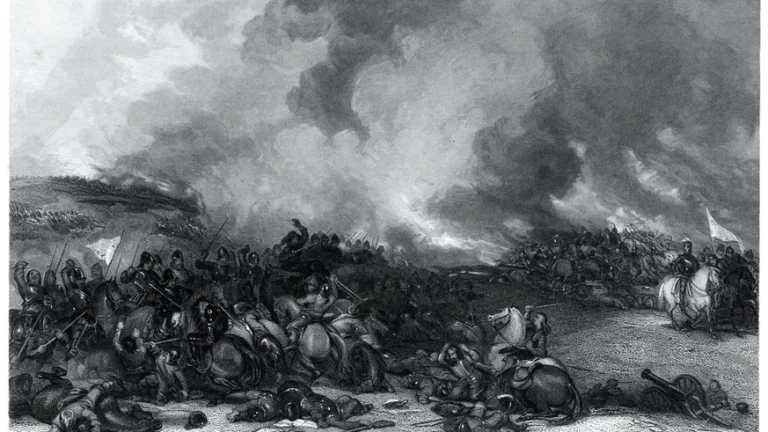
Author: George C. Burling Date:1862 Annotation: Almost as many soldiers died during the Civil War as in all other American wars combined. Union combat deaths totalled 111,904; another 197,388 died of disease, 30,192 in prison, and 24,881 as a result of accidents. Another 277,401 Union solders were wounded. Confederate casualties were nearly as high,…

Author: David V.M. Smith Date:1862 Annotation: The Civil War separated families in unprecedented numbers and freed women to assume many new roles. With the departure of many men into the military, women entered many occupations previously reserved for men only: in factories, shops, and especially, the expanding civil service, where women took jobs as…
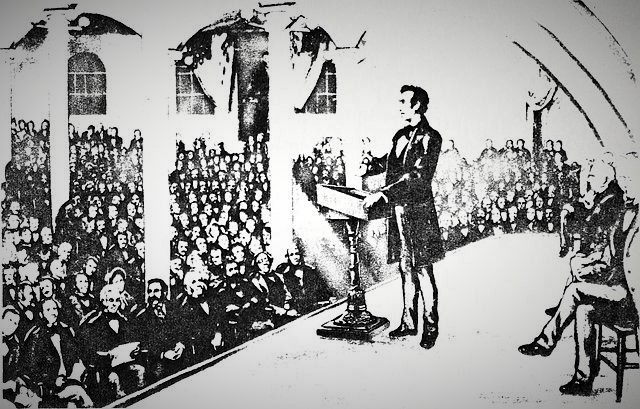
Author: Abraham Lincoln Date:1862 Annotation: The United States achieved independence in part because foreign countries such as France and Spain, entered the war against Britain on the American side. The Confederacy, too, hoped for foreign aid. In a bold bid to win European support, the Confederacy sought to win a major victory on northern…